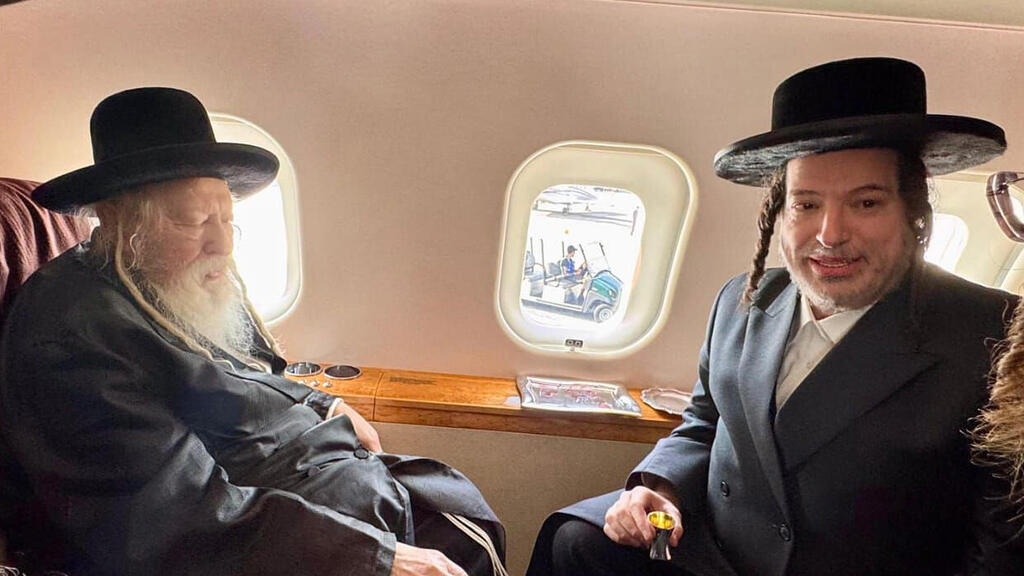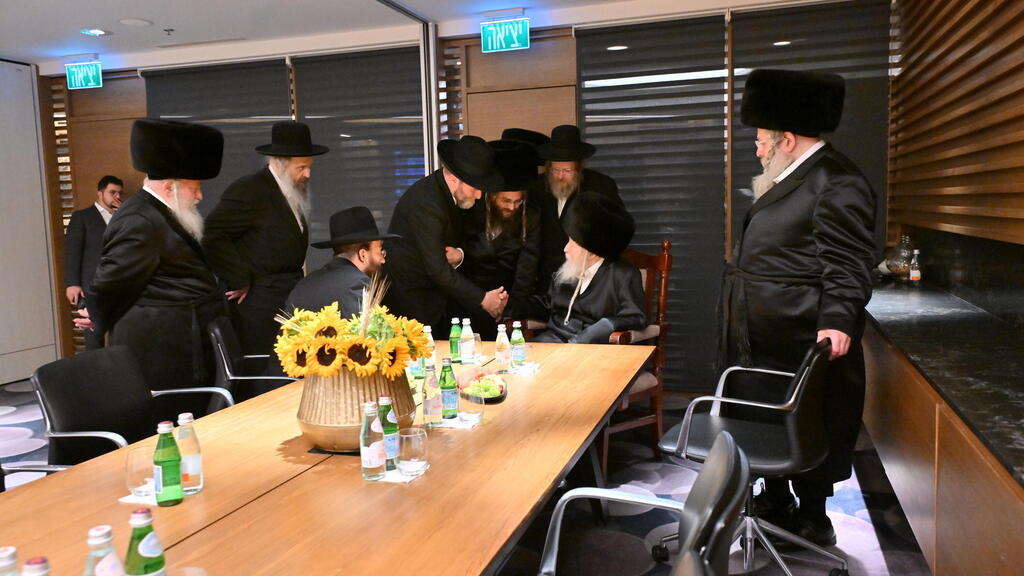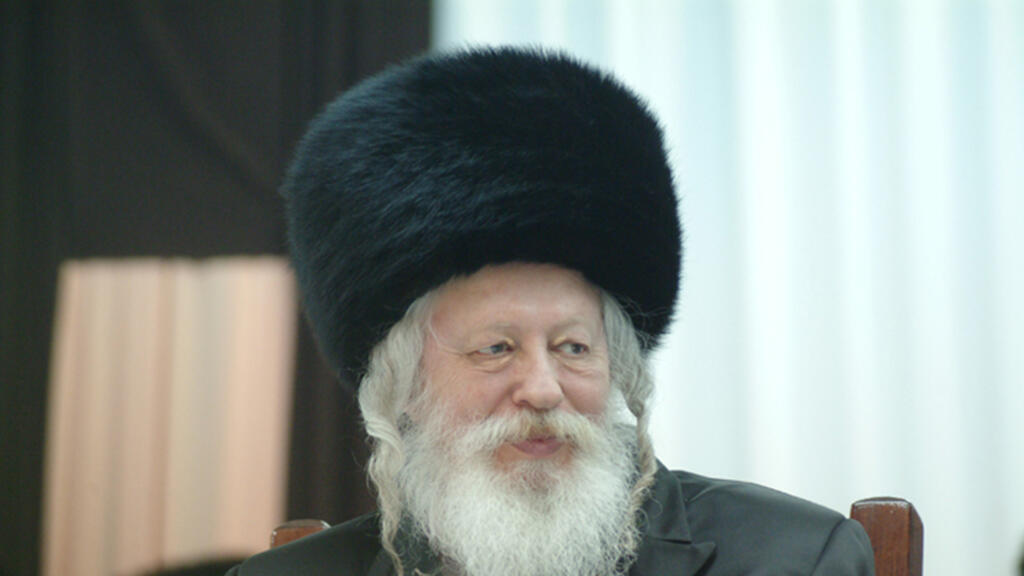Yoely (Joel) Landau, 45, is an eccentric Haredi businessman who amassed his fortune from nursing home businesses in New York. His name hit local headlines about a decade ago when he purchased a public building, Rivington House, from New York City for $28 million.
Within 13 months, he managed to change the building's zoning designation and resell it for a profit of approximately $70 million. The affair, dubbed the "Rivington House Scandal," led to the resignation of a New York City deputy mayor, prompted the city to change its procedures and saw Landau and his business group emerge largely unscathed.
However, he built a public image in New York as a controversial, sophisticated and perhaps even dubious figure.
Alongside his thriving business ventures (his net worth is estimated at half a billion dollars), Landau began emerging as a prominent figure within the broader ultra-Orthodox sector, despite being a Satmar Hasid – a group historically at odds with mainstream Israeli Haredi politics – and likely named after the sect's mythical Rebbe who died in 1979.
Landau maintains extensive connections across the entire spectrum of the Haredi world, including Hasidic and Lithuanian communities. He frequently travels via private jets and helicopters, far from being an ascetic or modest figure.
As a minor example, he imported Israeli singers Lior Suchard and Ishay Ribo for his daughter's post wedding Sheva Brachot celebration. He enjoys the spotlight, closeness to various influencers and garners affection within the community due to his generous donations.
Connecting the dots: Businessman and donor
Last week, Landau connected the two personas he embodies: the mischievous businessman and the beloved Haredi donor. The elderly Ger Rebbe, Rabbi Yaakov Aryeh Alter, 86, the spiritual leader of Agudat Yisrael, arrived in the United States to raise funds aimed at compensating for budget cuts to yeshivas.
He stayed with Landau and traveled on his private jet. Landau also personally made a significant donation. However, simultaneously, Landau decided to tell the Ger Rebbe what he thinks about the conduct of Haredi political parties and leaders in Israel.
True to his characteristic style, he did this again via a personal letter to the Rebbe, subsequently widely distributed. The letter, full of praise but also barbs and hints that "Satmar is better," became widely circulated.
Despite all this mischievousness, this letter warrants close attention. While Landau is not a significant spiritual figure, his position as an anti-Zionist Satmar Hasid and a major donor allows a glimpse into internal Haredi criticism. It creates a strange and almost perplexing encounter between the anti-Zionist Haredi worldview and the Zionist one.
Money as the mobilizing engine
In a quick Hebrew translation, Landau argues that Haredi reliance on the state harms Haredim themselves economically, psychologically and spiritually. He contends that economic dependence on the state creates little incentive for community rabbis to cultivate a generation of wealthy individuals who will support educational institutions.
Subsequently, this economic reliance turns into real dependence, leading Haredi society itself to view itself as incapable of handling its own economic needs. Consequently, it does not educate its sons to take personal responsibility for supporting institutions (which is why wealthy Haredim in Israel don't donate enough to institutions).
Get the Ynetnews app on your smartphone: Google Play: https://bit.ly/4eJ37pE | Apple App Store: https://bit.ly/3ZL7iNv
Finally, the economic dependence of Haredim on the state leads them to agree to spiritual compromises they themselves would find inconceivable. The biggest compromise, Landau asserted, is the willingness to draft those who don't study Torah (viewed by Landau and Haredim in Israel as "secularization and apostasy") solely to receive money for yeshivas.
Landau writes in sharp, religious language. In his letter, he draws a distinction between the Ger Rebbe and other Haredi rabbis.
In Landau's eyes, the Ger Rebbe is "the only one who stood courageously and heroically to leave the government that threatens to draft the yeshiva students of Israel into their impure army," and who dared to declare that "in Ger there will be no compromises; even a student who doesn't learn, we do not abandon."
But the other Haredi rabbis, according to Landau, "make compromises to defile the yeshiva students of Israel and send their sons to the Zionist Moloch."
Landau may be more extreme than some Haredi rabbis regarding the attitude toward the Israeli army but his observation that "all their aspiration is only to find a law of 'the lesser evil,' all in order to return to receiving money from the state and for the sake of the money they convince themselves that going to the army is not a great sin," is not far from reality.
The dependence of Israeli Haredim on government money looks very embarrassing in the eyes of New York’s ultra-Orthodox community.
Landau himself tries to convince the Ger Rebbe that the Israeli government understands its power over the Haredim and will therefore consciously act to change them: "Today, the heads of state began to reveal their fangs.
“They started demanding something in return for the money they give. They started demanding oversight in educational institutions. At first, it was discreet, but now, without shame, they are putting on the table the demand to completely interfere in the content of studies."
Landau referred to the demand for core subject requirements in ultra-Orthodox curricula and the withholding of "Ofek Hadash" (New Horizon) budgets from the independent Haredi education system.
His intuition is correct: donors to the Haredi sector in Israel – namely, non-Haredi Israeli citizens – have begun to be more demanding. They don't expect a "return," but they do expect their money not to be invested in places that harm them economically in the long term.
The Satmar Hasid from New York proposes to the Ger Rebbe to complete the move and "transform from consumers of the state to being master of their own fate, so that no one rules over them." Landau essentially laid bare before the Ger Rebbe how Haredim in Israel are viewed from the outside, as he wrote.
Sources inside the Ger Rebbe’s close circle told Ynet’s sister outlet Calcalist that the ideological differences between Satmar and Ger regarding accepting state funds are longstanding and will not change now – each faction maintains its own approach.
Ultimately, Landau is merely a wealthy young man and many viewed his letter as audacious and impudent toward the Ger Rebbe. Yet it went viral within the Haredi community, not due to its gossip value but because it touched on a question many Israeli Haredim ask themselves about their dependency on the state.





